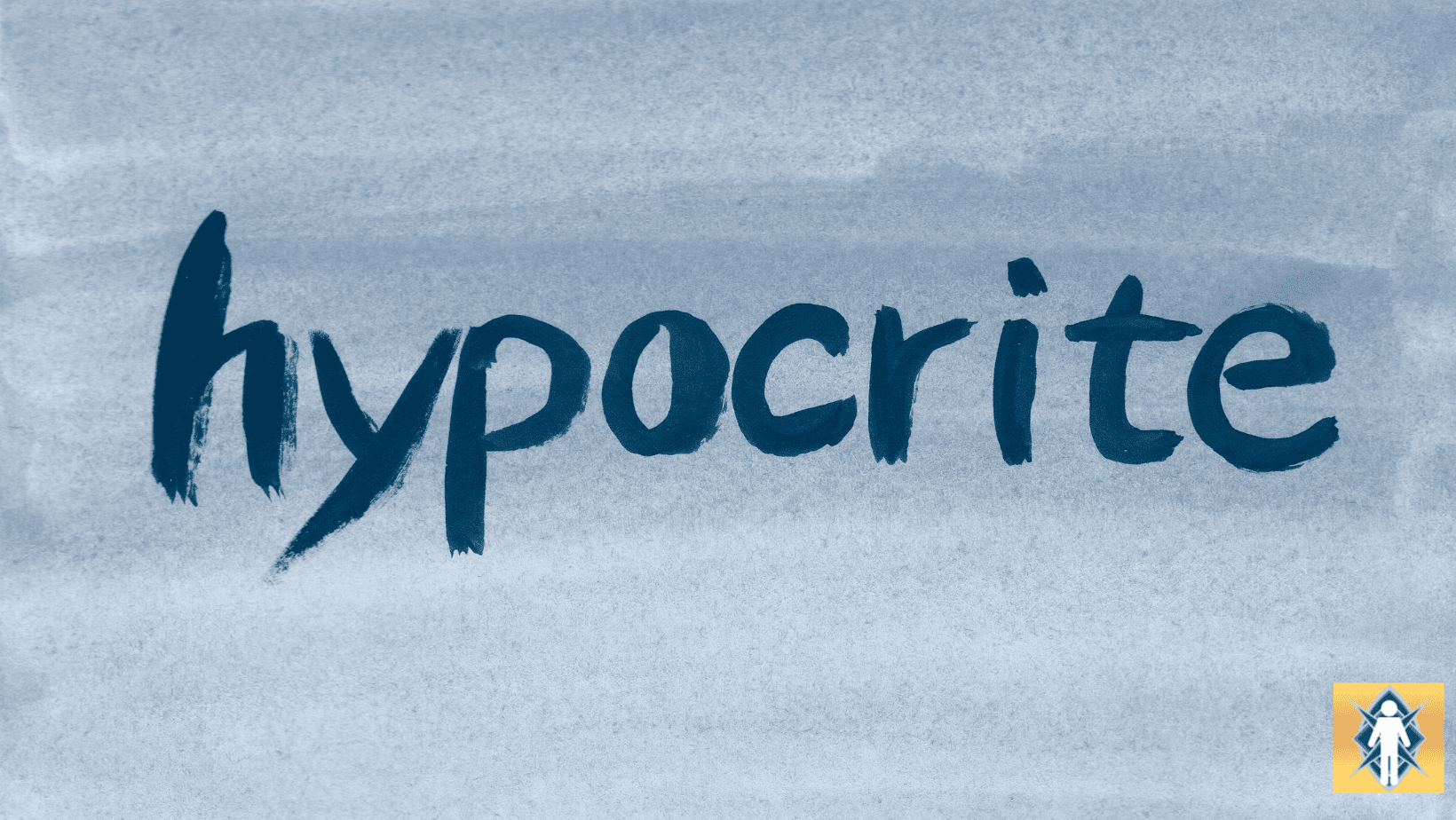
Christian Hypocrisy
There are many sayings that mock hypocrisy. One of my favorites, “Do as I say, not as I do,” expresses the sad truth that we are all susceptible to becoming hypocrites of the Law. As Christians we say one thing, and often do the other. At least we’re not alone.
Brethren, when Gentiles who have not the law do by nature what the law requires, they are a law to themselves, even though they do not have the law. They show that what the law requires is written on their hearts, while their conscience also bears witness and their conflicting thoughts accuse or perhaps excuse them on that day when, according to my gospel, God judges the secrets of men by Christ Jesus. But if you call yourself a Jew and rely upon the law and boast of your relation to God and know his will and approve what is excellent, because you are instructed in the law, and if you are sure that you are a guide to the blind, a light to those who are in darkness, a corrector of the foolish, a teacher of children, having in the law the embodiment of knowledge and truth – you then who teach others, will you not teach yourself? While you preach against stealing, do you steal? You who say that one must not commit adultery, do you commit adultery? You who abhor idols, do you rob temples? You who boast in the law, do you dishonor God by breaking the law? For, as it is written, “The name of God is blasphemed among the Gentiles because of you.” Circumcision indeed is of value if you obey the law; but if you break the law, your circumcision becomes uncircumcision. So, if a man who is uncircumcised keeps the precepts of the law, will not his uncircumcision be regarded as circumcision? Then those who are physically uncircumcised but keep the law will condemn you who have the written code and circumcision but break the law. For he is not a real Jew who is one outwardly, nor is true circumcision something external and physical.
Romans 2.14-28
Among the examples of Christian hypocrisy involved caring for the poor. With boldness many Christians push for public relief programs for the poor. Instead of using our own resources we demand public tax dollars be used to feed and cloth the poor. Then we complain it isn’t enough.
Rather than having compassion for the poor, we complain others aren’t doing enough. We drive our nice cars to the soup kitchen only to lobby politicians to increase taxes so we can feed more people. The problem is we are always feeding them with someone else’s money. We are hypocrites.
Today is the commemoration of Saints Cyrus and John the Unmercenaries. They used their resources to help others. They used their money to heal the sick. They didn’t complain others weren’t doing enough. They did what they could do, and glorified God in the process.
As a comparison, we keep our money for ourselves. This is why Saint Paul accuses us of knowing the Law but not following the Law. We are not ‘better Christians’ because we can convince ‘City Hall’ to feed the poor. We are better when we use OUR money to feed the poor.
It isn’t just about feeding the poor. Christian hypocrisy goes well beyond feed the poor. We have become so accustomed to having the ‘law’ on our side of morality, we think the only way to be good Christians is to force others in society to obey Christian laws, the very laws we disobey.
It was the Church that initiated social programs in history, not the government. Through the inspiration (mainly) of Saint Basil the Great, the Church established hospitals, nursing homes, and other social programs. It was the Church being the Church, following the Law.
Through history these programs were ‘taken over’ by governments and funding was forced upon the people whether they were Christians or not. Now that society is less and less Christian, the funding sources are drying up. Now Christians have to rely on Christians to feed the poor.
The solution isn’t to fight for more public funding for social programs. The solution is for Christians to live the law, not just talk about the law. Social programs began with the Church and should return to the Church, funded by the Church. That funding begins with our Tithe.
The Old Testament, the New Testament, and the Church has taught the Tithe (giving 10% of our income to the Church) as the Christian responsibility to the work of God. If we want to feed the poor, we should tithe. If we want to help those in need, we should tithe.
And this I say not as laying down a law, neither as forbidding more, but as recommending a deposit of not less than a tenth part. And this also do thou practice not in selling only, but also in buying and receiving a recompense. Let those also who possess land observe this law in regard to their rents: yea, let it be a law for all who gather their incomes in an honest way.
Saint John Chrysostom Homily 43 On 1st Corinthians
It is hypocrisy to use other people’s money to feed the poor, no less than it is hypocrisy to demand we be allowed to live by our morals while denying others their way of life. One thing history has proved. When we live by our Christian moral standards and others discover Christ.
Nobody ever became Christians because they were forced to live according to our way of life. To reject the free will of others is the greatest hypocrisy of all.
Tags: charity, freedom, law, politics, Romans, social issues, stewardship, Unmercenaries